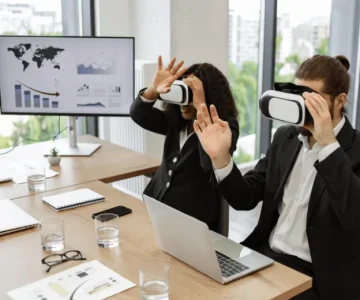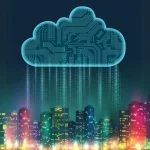The retail world is evolving faster than ever, with trends shifting daily through social media influence and customer reviews. To keep pace, retailers are embracing cloud-based infrastructure, which allows them to connect with more shoppers, streamline supply chains, reduce IT costs, and boost operational efficiency. This technological shift not only supports business growth but also enhances the overall customer experience.
Industry reports forecast significant expansion in this area, with the global retail cloud market projected to reach USD 39.63 billion by 2026, growing from USD 11.89 billion in 2018. The adoption of cloud solutions is reshaping retail management by delivering affordable tools for real-time data access, enabling personalized marketing, targeted customer engagement, and deeper insights into buying patterns.
Understanding Cloud Computing in the Retail Context
Cloud computing delivers IT services—such as data storage, processing, and analytics—over the internet. For retailers, this means they can manage vast amounts of information without relying on physical servers. Instead, they access secure, remote platforms that integrate customer data, sales figures, and supply chain details. By doing so, retailers gain a unified view of their operations, empowering data-driven strategies and personalized offerings.
Where Cloud is Making the Biggest Impact
- Smarter Inventory Control
Managing stock across multiple locations is a challenge for any retailer. Cloud-based inventory systems allow real-time tracking and predictive restocking, reducing issues like shortages or excess stock. This not only cuts costs but also keeps popular items available across all sales channels, ensuring customers find what they need without delay. - Optimized Supply Chains
Traditional supply chains often struggle to respond quickly to market changes. Cloud integration connects data from suppliers, warehouses, and logistics teams, enabling faster decision-making and better coordination. Automated demand forecasting and improved transportation management lead to lower costs and faster delivery times. - Deeper Customer Understanding
With advanced cloud analytics, retailers can uncover patterns in buying behavior, helping them fine-tune marketing, pricing, and product placement. By predicting trends, businesses can create timely offers and experiences that strengthen customer loyalty. - Tailored Marketing Experiences
Cloud technology enables personalized promotions and services at scale. Many consumers are willing to share information in exchange for customized deals, and cloud platforms make it possible to deliver these offers efficiently. From personalized emails to custom product recommendations, this level of engagement drives both satisfaction and sales.
Key Advantages for Retail Businesses
- Operational Efficiency – Centralized systems reduce the need for complex IT setups and enable automation of tasks such as order processing and stock management.
- Scalability – Retailers can quickly increase or reduce capacity based on seasonal spikes or special promotions, ensuring smooth customer experiences during peak demand.
- Cost Reduction – With pay-as-you-go pricing, businesses only pay for the resources they use, eliminating large upfront IT expenses.
- Omnichannel Integration – Cloud platforms synchronize inventory, customer data, and transactions across physical stores, websites, and mobile apps, providing a consistent shopping journey.
- Data Security – Cloud providers implement advanced security measures to protect sensitive information from cyber threats.
- Sustainability – By reducing physical infrastructure and improving energy efficiency, cloud adoption supports eco-friendly initiatives.
- Contactless Services – Cloud-based checkout and payment systems support modern shopping preferences for safety and convenience.
Retail Leaders Using Cloud to Their Advantage
- Walgreens uses IBM cloud tools to streamline field operations and ensure timely IT support across its widespread store network.
- Coca-Cola operates on a hybrid cloud model to monitor its supply chain in real time, enhance collaboration across global teams, and analyze customer behavior for strategic decision-making.
- Bernhardt Furniture developed a cloud-powered virtual showroom accessible from any device, making product exploration more convenient for customers.
- Amazon leverages cloud and AI for predictive ordering and checkout-free shopping, creating ultra-fast and frictionless customer experiences.
Looking Ahead
Cloud computing in retail has moved far beyond basic functions. What began as a way to manage email or CRM systems is now an integral part of inventory control, marketing, and customer engagement. As technology advances, retailers can expect even greater opportunities through edge computing, blockchain integration, AI-driven insights, and enhanced data security. The businesses that embrace these changes today will be best positioned to meet the demands of tomorrow’s shoppers.





